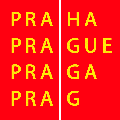Schools for the Future
The main goal of the project is to create an environment for transformational learning to support pupils’ self perception of themselves as agents of change. Empowered to imagine and contribute to building alternative futures, the project will support pupils' capacities for decision-making and making their voice heard, to reflect critically on the values shaping society today and active participation in creating a socially just and ecologically sustainable society.
Schools for the Future
Financial support
Operational Programme Prague – Growth Pole of the Czech Republic
Project duration
April 2020 – June 2022
Coordinator of the project in CUEC
Jana Dlouhá/Laura Henderson
Project description
Aims of the project:
The main goal of the project is to create an environment for transformational learning to support pupils’ self perception of themselves as agents of change. Empowered to imagine and contribute to building alternative futures, the project will support pupils' capacities for decision-making and making their voice heard, to reflect critically on the values shaping society today and active participation in creating a socially just and ecologically sustainable society. The approach we use is the Creative Partnership program and pilot implementation of the Children's Think Tank, which establishes partnerships between teachers and students with experts from the fields of art and creative professions.
We will focus on the following specific goals:
A) Development of transformational learning, futures thinking, the development of sustainability competencies and agency of pupils - classroom activities are based on practically oriented teaching, where students under the guidance of a teacher and artists engage in real-world change-making activities.
B) Support for activating teaching methods with an emphasis on creative education, integrated thematic teaching, interdisciplinary links - in cooperation with teachers and artists. Will be implemented in school programs, based on activating methods, creative learning, using creative methods and tools.
C) Development of values reflection, critical thinking, self-awareness, cooperation, creativity, problem-solving skills and other competences of pupils. The project embeds processes of participation and collaboration so that pupils have the opportunity to engage in important decisions (eg. selection of an artist/artistic medium, identifying project themes based on a mapping process of pupils’ interest and local sustainability challenges, selection of possible activities, implementation of a public forum). Activities offer place-based learning experiences, connection with real life in the local community, collaboration, responsibility towards the group for fulfilling their tasks, and presentation of the results to the public.
Theoretical background
Activity preparation and development in creative learning methods: the theoretical basis of the project is based on the concept of action competences (Jensen and Schack 1997), Lundy's model of participation (Lundy, 2007), the concepts of key competences for sustainability (Rieckmann, 2017) and creative habits of mind (Lucas et al, 2013); it uses Nerstrom's (2014) model of transformative learning.
Scope of the project:
The project will support over 400 pupils over 2 years.
Action research will be used to produce a summary report of findings, including impacts on pupils.
Children's Think Tank: the Think Tank is a space and support structure that will allow pupils to explore in depth sustainability issues under the guidance of artists and experts, and an opportunity to develop the ability to formulate solutions and implement action steps.




